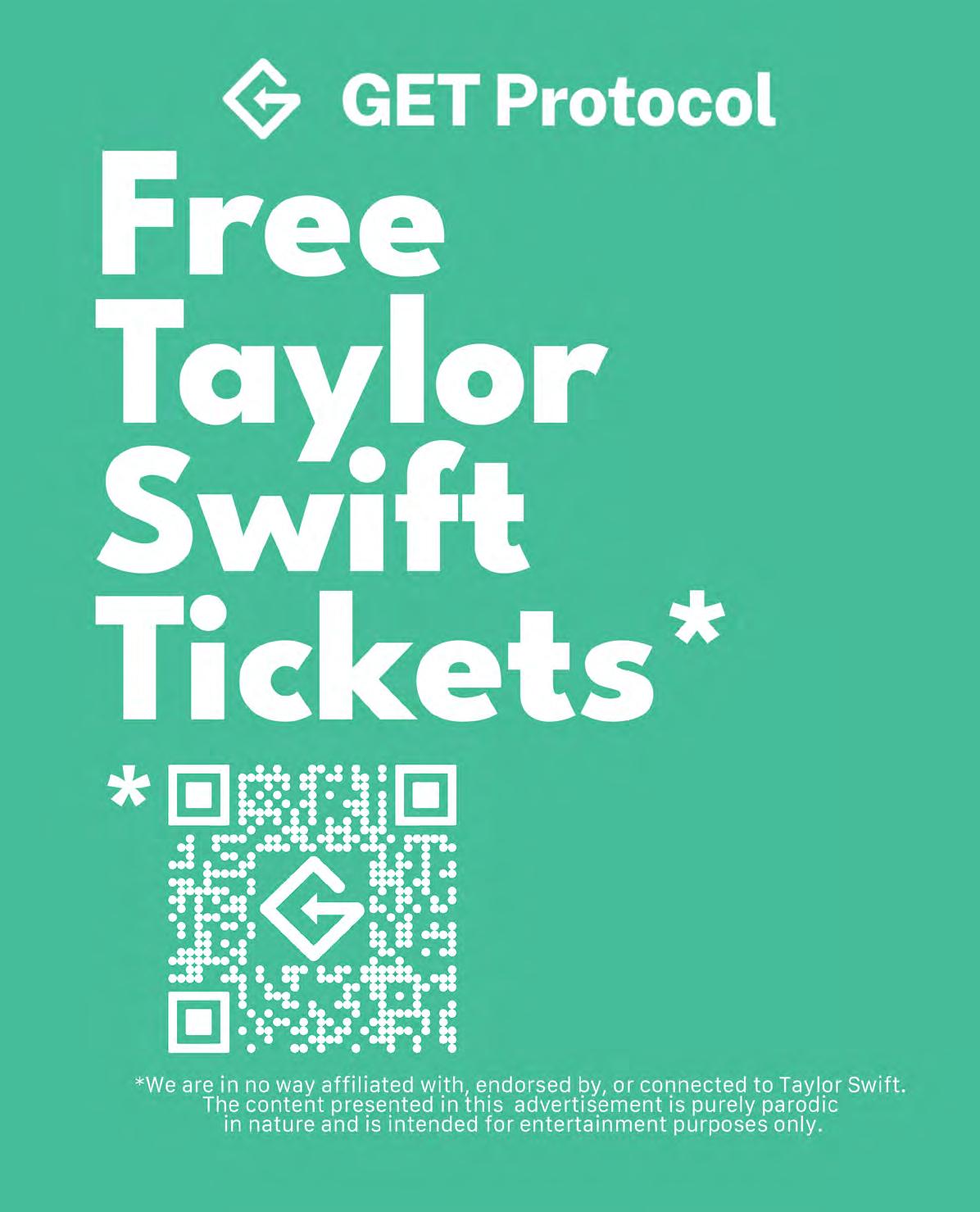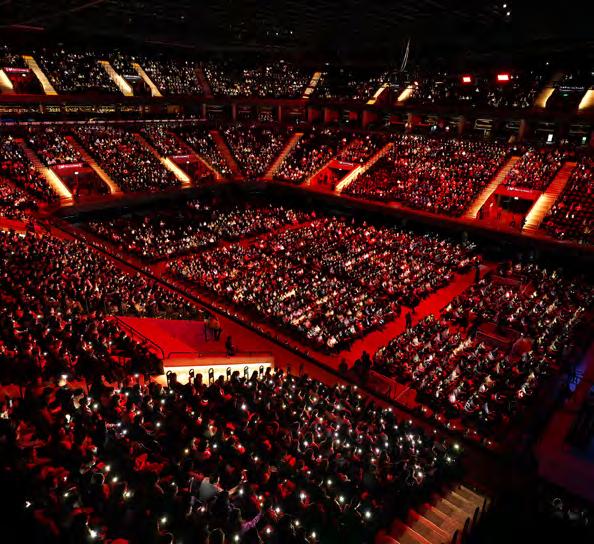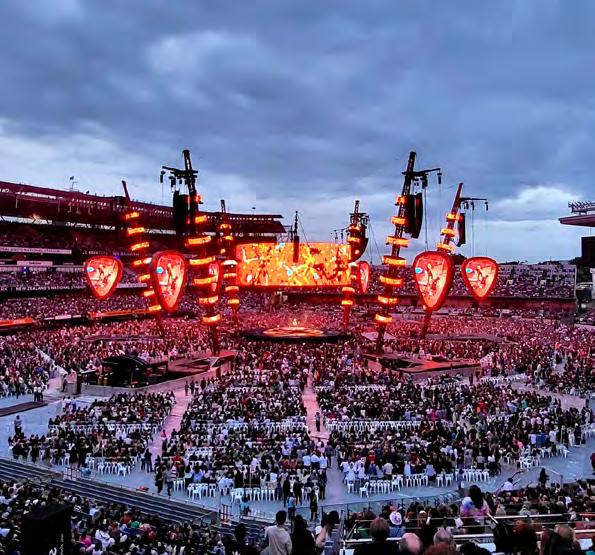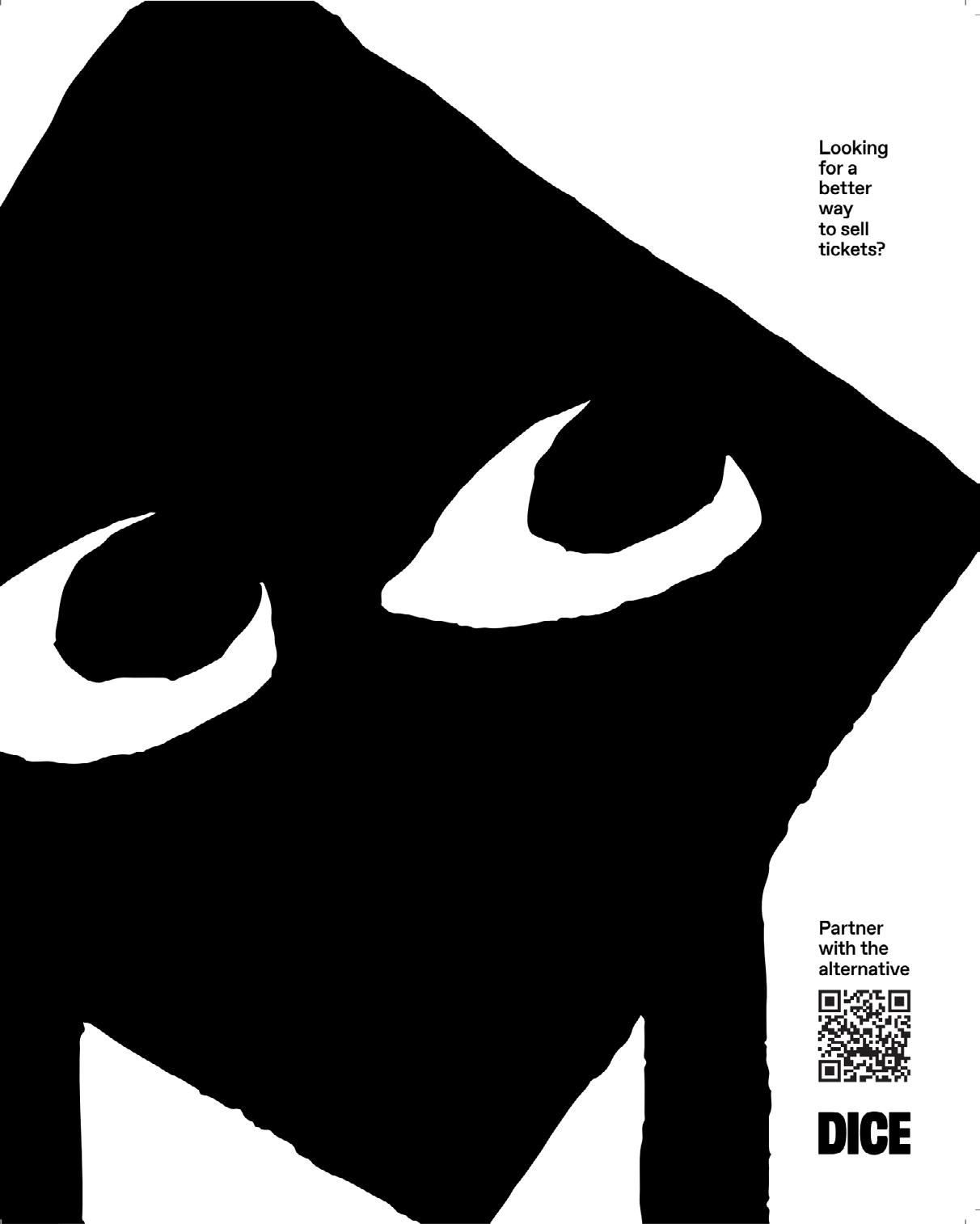














Over the past 12 months, it feels like ticketing has rarely been out of the news. The US president’s demand for all-in ticket pricing (as Ticketmaster has long been calling for) is seeing rapid change across the world’s largest music market. And while this practice is commonplace in many other countries (Australia mandated clear ticket pricing a decade ago), it’s heartening to see a major shift in this direction, which can only benefit fans.


As the connection between fans and their favourite artists, ticketing companies have long been the focus of disappointment when the limited inventory means not everyone can get a ticket. But this year, with record levels of demand for tickets to see Taylor Swift (and accompanying attempts by people to secure tickets using bots), the noise and vitriol directed at ticketers has reached a peak. But how can we resolve this?
As you read through our analysis of over 40 ticketing markets, what becomes apparent is how much we all have in common. So, in this edition of the International Ticketing Report, we’re exploring some of the biggest issues to have hit the headlines, talking to the heads of the top firms about what reforms they want to see happen worldwide to make ticketing better for everyone.
Ticketing and technological advances go hand in hand, as companies invent new ways to ensure tickets reach fans; protect people from fraudsters and scalpers; make the sales process more efficient, and more. In this edition, we’re taking a look at some of the companies finding creative solutions to some of the ticketing industry’s – and the fans’ – most frequent problems.
Plus, as Klaus-Peter Schulenberg of CTS Eventim and Cameron Hoy of Ticketek tell us, AI and machine learning are already revolutionising the ticketing industry, and there’s plenty more untapped potential to explore.



Finally, thank-you to everyone who’s helped bring the ninth edition of the International Ticketing Report to life: all those who contributed knowledge, took part in interviews, and supported this insightful publication, and everyone involved in creating it.
I hope you find it valuable, interesting, and useful.
James Drury | EditorTechnology is an important driver of change in the ticketing industry. From making it easier to get tickets into fans’ hands to ensuring buyers are protected against fraud, there’s no shortage of companies offering cutting-edge solutions to the industry’s problems. Here are some of the firms driving the business forward.
Thousands of professionals read IQ every day. Make sure you get the whole picture…
The largest ticketing company in the world, Ticketmaster, has long been campaigning for legislation on this issue.
The company’s global president Mark Yovich tells us: “Ticketmaster has shown all-in pricing for many years in a number of territories outside the US, as required by consumer law. Today we operate in over 30 countries and more than twothirds of those display all-in pricing. We know it’s a better experience for fans and have long advocated for this in countries where it is not mandated. We also give fans in those markets a toggle to see prices including fees upfront.
“In the US, the industry noise is getting louder, and we are hopeful federal legislation is finally in sight, which would be great news for fans. Enforcement will be key to its success, as we have seen unscrupulous sites appearing in search results with misleading pricing even in the US states where all-in pricing is now law.”
Ticketing has long been a dynamic and fast-moving sector of the live entertainment industry. But it’s been quite some time since things were as heated as they have been in the last 18 months.
Media reports have been rife with topics such as the dynamic pricing of Bruce Springsteen’s tour and frustrated people unable to see one of Taylor Swift’s Eras tour dates.
Then, there’s been the involvement of the US president, Joe Biden, who’s been determinedly campaigning against hidden fees.
Clarity on fees is also supported by Germany-headquartered global giant CTS Eventim. CEO Klaus-Peter Schulenberg says: “We fully support the goal of giving consumers maximum transparency, particularly on ticketing fees.”
“The president’s commitment to scrap junk fees is a huge step forward for a more enjoyable, more equitable live experience,” DICE CEO Phil Hutcheon told IQ in June. “DICE has always had upfront pricing, and it leads to more fans going out more often and ensures everyone can access the artists they love.”
The stumbling block to a wider roll-out of all-in pricing is that without legislation, the competitive nature of the industry will mean companies who are using fully transparent pricing could lose out to those that don’t. This would leave consumers confused and mean the firms that enact all-in costs could lose traffic to those that aren’t.
“It’s a competitive industry, and we see other ticketing companies trying to win purchases by advertising the lowest ticket price possible – prices that exclude the fees,” says Yovich. “This even happens in states in the US that currently mandate all-in pricing. Where Ticketmaster uses all-in pricing, we show the total price upfront. The discrepancy across platforms makes it impossible for fans to gain the full benefits of comparison shopping.”
He says Ticketmaster wants to see the law changed around the world, to create a level playing field.
What happens in the US often reverberates across the rest of the world. If the US federal government legislates that ticket prices have to reflect the final cost upfront, then will those countries that don’t currently do that follow suit?
“In the ticketing industry, what happens or what’s developed in North America is usually implemented internationally,” says ticketing consultant Tim Chambers. “But will increased government regulation of ticketing or
Thousands of professionals read IQ every day. Make sure you get the whole picture…
From the US president’s call for reform to frustrated fans being increasingly vocal about not getting tickets for high-demand shows, there’s never been so much scrutiny on the ticketing industry. With significant change on the horizon in the USA, what’s the broader impact worldwide?

Population: 46.6 million
Language: Spanish
Currency: Argentinian peso (ARS)
GDP per capita: $21,500
Internet users: 39 million
Active smartphones: 30 million
The fact that 2m people in June 2023 attempted to buy tickets for Taylor Swift’s run of three shows at the River Plate Stadium in Buenos Aires possibly says more about Swift’s pulling power – they will be her first ever shows in the country – than it does about live music as a whole in the country. Add to this, however, the fact that Coldplay did ten nights at River Plate, a record for the stadium, in late 2022, while other acts like The Weeknd (playing in October) are adding dates there, and it is clear Argentina is a key stop for international acts on their world tours. The Argentinian economy, however, remains tempestuous, with inflation topping 114% in May (although this was below some analysts’ worst forecasts). With annual inflation at its highest level since 1991 and four in ten people in the country classed as living in poverty, the political situation in Argentina appears increasingly unstable. Major acts might want to add in blockbuster shows in the capital, but their success here should not detract from the economic situation in the country where concerts are a luxury far out of the reach of many.
While Ticketmaster is active in the market, there are many specifics in Argentina that make it unique. All of the major production companies have their own ticketing arms, so DF Entertainment owns All Access, Move Concerts owns Live Pass, and Ake Music Productions owns Full Ticket. Live Nation events are also sold via All Access, making it the major player for large-scale events. On top of this, some of the leading arenas have their own ticketing operations. Estadio Luna Park in Buenos Aires runs TicketPortal while the Movistar Arena uses the entradaUno platform. Other ticketing companies are the major ticketing suppliers for theatres, with Teatro Gran Rex, Teatro Opera, and Teatro Coliseo (all of them in Buenos Aires) using Ticketek, while many smaller theatres use Plateanet. Ticketek is the oldest ticketing company in the country and is generally taken as having the largest market share.

As in every major market, e-tickets are dominant, with around 90% of tickets being delivered digitally. Hard tickets do still endure in some instances, but mainly for comps and corporate events. “We don’t have dynamic pricing in Argentina,” says Ezequiel Minoyetti of Ake Music. “The only innovation has been made by DF Entertainment with the Quentro app used to transfer e-tickets with dynamic QR.”
Esteban Stalgis of TuEntrada says, however, that some festivals are experimenting with different pricing tiers, where the first tranche of tickets will be at a lower price that rises in increments. Stalgis says that the tipping point was Covid, when digital became the main ticketing format. The lifting of
Covid restrictions saw audiences clamouring for tickets like never before, but this was temporary. “Now the situation has calmed down,” says Minoyetti, “and particularly in Argentina it is declining due to the bad economic situation that the country is suffering.” The instability of the Argentinian economy has meant that ticket prices are changing “nearly every month,” according to Stalgis, while Minoyetti adds, “the longer they go on sale, the more expensive they are.”
PwC has not tabulated the value of the Argentinian live events market for several years, but Statista suggests it will be worth $30.2m this year and forecasts that this will rise to $33.8m by 2027. The economic and inflation woes in the country, however, make any forecasting a risky undertaking.


Viagogo is the major secondary player in Argentina but is controversial in the industry. Its deft use of SEO places it top of Google search results for popular shows, but it is very much seen as something fans use once and never use again as they will invariably have a bad experience. “Tickets are very expensive and sometimes fake,” says Minoyetti. “It is not a good option.” Stalgis is even more blunt in his assessment. “They have a terrible image,” he says. “Nobody buys twice on Viagogo. They rip you off with the price, and they sell too many fake tickets.” At the time of writing, single tickets on Viagogo for one of Taylor Swift’s shows in November were starting at around $500 and exceeding $1,500.
The economic issues in the country mean touring comes with high risks for international acts and this is reflected in how they are priced. “Tickets for local artists are lower priced and react slower to inflation,” explains Minoyetti. “On the other hand, the tickets for international artists are very expensive in pesos since they go on sale well in advance and include some insurance against a devaluation of the peso.” Stalgis notes that 2022 and 2023 saw major international names coming to
the country but says a number of domestic acts such as Duki, Bizarrap, YSY A and Trueno have done well post-pandemic, and this suggests an important growth in the local market. The dominant genre in the country is pop, followed by rock. Trap and urban acts, however, are steadily gaining ground and suggest a genre dynamic in transition for live music.
The state of the economy overshadows everything in Argentina. The success of a few major international acts like Taylor Swift and Coldplay should really, therefore, be read as the exceptions rather than the rule. The worrying instability of the peso makes it very difficult for international acts to come
Population: 26.5 million
Language: English
Currency: Australian dollar (AUD)

GDP per capita: $49,800
Internet users: 25 million
Active smartphones: 27 million
With one of the smallest populations relative to geographical size, Australia punches above its weight when it comes to live entertainment. Despite the distances artists have to travel to tour the continent, fans buy tickets by the bucketload. It’s recently seen 1m tickets sold for Ed Sheeran’s Divide tour, while P!nk’s Funhouse outing filled 58 arena dates. Business is most certainly back.
Australia’s entertainment ticketing space is dominated by the “big two,” Live Nation’s sister company Ticketmaster and TEG’s Ticketek, which combined account for an estimated 80% of all live entertainment tickets sold in these parts. On its official website, Ticketek claims to facilitate 23m ticket sales to more than 20,000 events each year. Ticketmaster doesn’t reveal the volume of tickets that pass through its business.
Ticketmaster also owns Moshtix, which, until its acquisition in early 2018, was recognised as one of this country’s leading independents. Today, Oztix can claim to be the country’s leading indie. Based in Brisbane, Oztix this year celebrated its 20th anniversary with the acquisition of Local Tickets, a rival ticketing agency specialising in local events across the country. The new business is rebranded to Localtix, with the business’s CEO Kristen Goldup appointed as brand director across Oztix and Localtix.
The indie regularly has 4,000 events on sale across the country, commercial director Seth Clancy told industry guests at its anniversary party. The ticketing agent also boasts over 5.5m customers, more than 2.5m opt-in customers, which the business communicates with regularly, and its marketing system is underpinned by more than 20m datapoints.
A new player entered the market in 2023, the AEG-owned AXS. Andrew Travis, former CEO of Gold Coast Suns AFL franchise, leads the company as managing director AXS

to the country, while local acts, despite their growth in popularity, are having to accept lower prices for their shows as normal. Predictions are already being made that the general election in October this year will see a major lurch to the right politically, with self-described “anarcho capitalist” Javier Milei seen at the time of writing as the potential frontrunner, and could see an enormous shakeup of politics, and, by default, the economy. It is still too early to call, but many political analysts are painting a gloomy picture if he wins.
Tickets in Argentina are not subject to VAT (normally 21%), but service charges can range from 10% to 15%.
Australia and New Zealand.
Matt Gudinski, CEO of Mushroom Group CEO, whose Frontier Touring company is a domestic partner with AEG, welcomes the new ticketing player, noting “the market needs a bit of a shake up.” To have AXS open for business in Australia, “it’s only going to be a good thing for ticket buyers and promoters and venues,” he tells IQ, and it “gives people on the industry front another option. It’s still early days, but it’s exciting. It’s a real blessing to have a company such as AXS in the market.”

Australians are early adopters in digital ticketing, “well before the United States and certainly before the UK,” says Ticketek managing director Cameron Hoy. And Australians “have always been early adopters with technology.” The shift to paperless ticketing began back in the early 2010s. “We’re one of the most advanced ticketing markets in the world,” he explains.
Digital tickets now account for three quarters of total sales, explains Gavin Taylor, managing director, Ticketmaster Australia.
One technological advancement has sparked a debate in these parts – the use of facial recognition technology at entertainment venues. In July, consumer watchdog organisation Choice launched a campaign on facial recognition technology (FRT), in which it questioned the use of it at ten venues, including the Sydney Cricket Ground, Allianz Stadium, Melbourne Cricket Ground, and Qudos Bank Arena.
Reps for Choice say the owners and operators of venues on its FRT report aren’t being open and transparent about the use of the tech, and that, when contacted for more information, “many” operators “were vague or non-responsive.”
TEG, the lessee of the 21,000-capacity Qudos Bank Arena at the Sydney Olympic Park precinct, issued a response in which it stated the business doesn’t collect or share biometric data. “Facial recognition at Qudos Bank Arena is solely utilised for security reasons to identify any persons of interest,” says a TEG spokesman.
The FRT genie is out of the bottle and, as history tells us, is unlikely to be squeezed back in.
Biometrics, Hoy told this reporter at the 2023 Asia-Pacific Venue Industry Congress in Melbourne, is “a really interesting space, one which obviously comes with all kinds of problematic privacy issues.” The way in which “consumers respond and react to that kind of technology is the key consideration, and it’s important to monitor the different levels of acceptance in various markets,” he continued.
Thousands of professionals read IQ every day. Make sure you get the whole picture… SUBSCRIBE HERE
Population: 17.4 million
Language: Dutch
Currency: Euro (EUR)
GDP per capita: $56,600
Internet users: 16.5 million
Active smartphones: 21.8 million

2022 was, in many ways, a clearing of the post-Covid backlog of shows that were delayed in The Netherlands. Things in 2023 are now as back to normal as they can be. The Netherlands is a major stopping point for international touring acts, with names like Bruce Springsteen, Arctic Monkeys, Depeche Mode, Beyoncé, The Weeknd, Coldplay, and Iron Maiden all playing there this summer.
Ticketmaster and Eventim are comfortably the biggest ticketing companies in the country, with See Tickets also strong. Eventbrite, once seen as performing well in the Netherlands, appears to be in decline. One of the more interesting new players is GUTS, which operates on Web3 and “[issues] honest tickets that put an end to disgraceful secondary market prices and ticket fraud,” although they are currently focused mainly around theatre events and comedy.
Jakob Lund, Ticketmaster’s regional VP of Northwest Europe and MD of the Netherlands & Denmark, says his company is steadily innovating here on a technological level. “The ability to transfer tickets and Ticketmaster Resale are the two main new initiatives we have recently launched,” he explains.
Local players include Onlineticketsshop and Stager, but they typically deal with venues with a capacity of 300 and under. Ticketmaster introduced a trial of dynamic pricing in the Netherlands in early 2023 but it appears to be too early to properly judge its impact.
Almost all ticket sales are digital in the country, with an emphasis on mobile. In recent years, physical tickets have all but been phased out due to changes in sub-retailing. “In 2019, there were a lot of physical ticket outlets throughout the country, like post offices and local stores, which sold tickets for Ticketmaster and a couple of other ticket suppliers,” says Erik Luyten of the Paradiso venue in Amsterdam. “Most of them have stopped selling. We only have one physical point of sale outside of the venue. It’s just a couple of hundred tickets per year so it’s not a lot.”
Lund says the trend is not just towards digital ticketing but more specifically mobile ticketing. “We’re seeing a rapid trend towards mobile-only tickets, with many fans receiving their tickets in the Ticketmaster app,” he says. “For some events or audiences, it’s quite challenging to transition from paper tickets to mobile-only, so we are investing time in educating fans.”
Statista reports that the music events market in the Netherlands will be worth $613.5m in 2023, rising to $686.1m

by 2027. There are still a number of challenges in the market, with a number of second-tier and third-tier acts pulling out of shows. “Touring is getting a lot more expensive for artists compared to how it used to be,” says Luyten. “Last year, we saw some cancellations of tours because of Covid, but now the cancellations are due to another reason.”

There are currently no laws in the country placing a cap on resale prices, but there is, says Luyten, talk of laws coming in that would put a 120% cap on resale prices. TicketSwap is seen as the biggest player in the country in terms of secondary sales. The firm – which is headquartered in the Netherlands –recently launched FairShare, an initiative which means profit is split between the event organiser and the reseller of the ticket. It also announced it is “the official marketplace partner” of Amsterdam Dance Event for three years. Ticketmaster launched its own resale platform here in 2022, and See Tickets also operates its own resale offering. Viagogo, however, has a very poor reputation in the Netherlands.
The Netherlands is a major stop on European tours, so international acts perform well in terms of market share. Dance and electronic music are popular (the annual Amsterdam Dance Event is further proof of that), but Luyten says that rock, indie, and singer-songwriters also do good business at the Paradiso. A study by the Dutch association of music venues and festivals (VNPF) found that 81.2% of acts performing concerts in the Netherlands in 2021 were Dutch, rising to 87.4% when looking specifically at club nights.
The export value of Dutch music in 2022 was €171m according to Buma/Stemra numbers.
There is a 9% VAT charge on all cultural tickets, including music events, in The Netherlands. The rate for livestreams, however, is 21%.
Population: 5.1 million
Language: English
Currency: New Zealand dollar (NZD)
GDP per capita: $42,900
Internet users: 4.9 million
Active smartphones: 5.8 million
New Zealand punches above its weight when it comes to live entertainment, with most of the top-tier artists stopping here on world tours, as well as healthy regional and domestic scenes. The spectre of some of the severest Covid lockdowns in the world are well and truly behind it.
New Zealand’s ticketing market is, like its bigger neighbour Australia, led by the international giants Ticketmaster and Ticketek. The major players and leading independents operate in both markets, including leading Australian independent Oztix, which, since 2009, has operated in NZ through sister company NZtix (both are subsidiaries of Ticket Solutions group).
Ticketmaster-owned company Moshtix, one of the leading independent ticketers in these parts prior to its acquisition in February 2019, is run by New Zealand-born-and-bred managing director Harley Evans.
AEG-owned AXS entered the Australian and New Zealand marketplace in 2023.

One actor that continues to operate in the Land of the Long White Cloud, despite howls of protest from concert promoters, ticketers, and music fans, is Viagogo. Though
Viagogo’s position is under a cloud after the NZ Commerce Commission’s legal proceedings with the rogue operator finally reached court in 2023.
The Commerce Commission first began proceedings in November 2018, claiming that the ticket resale platform breached consumer rights protections by failing to be transparent about price commissions and selling tickets that proved to be invalid. Initially, the Commerce Commission sought an injunction to force changes to some of its activities, though it wasn’t granted. As the case kicked off in February 2023, reps for Comm Comm, as it’s affectionately known, told the High Court in Auckland that 90% of tickets sold by Viagogo are put up for sale by professional scalpers and that the regulator had received some 1,300 complaints or communications about the platform.
Viagogo managing director Cris Miller told reporters that “the issues raised by the Commerce Commission relate to the way our ticketing website worked in the past and do not reflect current operations.” Needless to say, ticketing professionals everywhere await the outcome of that case.
Digital ticketing is the most popular way for fans to unlock entry for the show. For Ticketmaster, mobile tickets account for 81% of all ticket sales, while 9% are print-at-home, explains the ticketing giant’s general manager for NZ, Anjelica Devoe. To combat fraudulent ticket sales, notes Devoe, the company has introduced its SafeTix-encrypted digital tickets. Other players have developed their own systems to counter bogus tickets.
NZ’s live music market is on the post-pandemic bounce. PwC’s NZ Music Economic contribution report 2023 estimates that, in 2022, NZ’s music industry directly contributed $350m to the national GDP and $720m in total, after accounting for multiplier effects. Live music generated an estimated $136m in that timeframe. That remains down from the roughly $200m reported for 2019, the “strongest ever” year reported for live performance revenue in New Zealand, the document continues.

The flow of international artists into the southern hemisphere has opened up more opportunities for fans to travel, and with that, the likes of Ticketmaster and Ticketek have introduced hotel packages to the ticket-buying experience.
Cameron Hoy, managing director – Ticketek, and chief digital officer – TEG, says: “We’re working really hard to make all transactions a very painless and frictionless process.” Ticketek, he continues, has been “invited to collaborate with various partners who specialise in accommodation to create a seamless experience for people wanting to purchase ticket and accommodation packages.”
Rock, hip-hop, roots, reggae, pop. They’re all hot in NZ. The festival market “continues to boom with both Rhythm and Vines and Greenstone Entertainment looking at a strong 2023/2024 summer season,” says Mark Kneebone, managing director of Live Nation NZ. “That’s another large area of growth for us – we continue to invest in new festivals and venues as we expect to see significant growth in New Zealand over the next decade.”

Thousands of professionals read IQ every day. Make sure you get the whole picture…

AEG Presents (INTL)
aegpresents.com
Ake Music Productions (AR) akemusic.com
AleBilet.pl (PL) alebilet.pl
AXS (INTL) axs.com
Baila.fm (ES) baila.fm
Bilešu Paradise (LV) bilesuparadize.lv
Bilešu Serviss (LV) bilesuserviss.lv
Bilete.ro (RO) bilete.ro
Biletix (TR) biletix.com
Biletomat (PL) biletomat.pl
Biletserwis (PL) biletserwis.pl
Bilety.fm (PL) bilety.fm
Biletyna (PL) biletyna.pl
Bilheteira Online (PT) bol.pt
Billet.dk (DK) billet.dk
Billetlugen (DK) billetlugen.dk
Billetten (DK) billetten.dk
Billetto (DK) billetto.dk
Boletia (MX) boletia.com
BookMyShow (IN) in.bookmyshow.com
Bugece (TR) bugece.co
Carousell (SG)
e+ (JP) eplus.jp
Easol (UK) easol.com
eBilet (PL) ebilet.pl
El Corte Inglés (ES) elcorteingles.es Enterticket (ES) enterticket.es
Entradas a tu Alcance (ES) entradasatualcance.com
Entradas.com (ES) entradas.com
Eticket (MX) eticket.mx
Eventbrite (INTL) eventbrite.co.uk
Eventfrog (CH) eventfrog.net
Eventim (INTL) eventim.com
Eventix (NL / IE) eventix.io
Francebillet (FR) francebillet.com
Full Ticket (AR) fullticket.com
Funcode (HU) funcode.hu
GET Protocol (NL) get-protocol.io
Gigantic (UK) gigantic.com
GlobalTix (SG) globaltix.com
GoOut (CZ) goout.net
GUTS Tickets (NL) guts.tickets
Hong Kong Ticketing (HK) hkticketing.com
Howler (ZA) howler.co.za
iaBilet.ro (RO) iabilet.ro Insider.in (IN) insider.in
Iticket (TR) iticket.com.tr
Jegymester (HU) jegy.hu
KupBilecik (PL) kupbilecik.pl
carousell.sg
Cityline (HK) cityline.com
CN Playguide (JP) cnplayguide.com
Come Together (GR) cometogether.live
Computicket (ZA) tickets.computicket.com
CTS Eventim (INTL) eventim.com
Damai.cn (CN)
damai.cn
DF Concerts (UK) dfconcertsandevents.com
DICE (INTL) dice.fm
Don Boletón (MX) donboleton.com
DynamO Pricing (HU) dynamopricing.com
Lawson HMV Entertainment (JP) lawson.jp
Live Nation (INTL) livenation.com
Live Pass (BR) livepass.com.br
Luxembourg Ticket (LU) luxembourg-ticket.lu
Lyte (US) lyte.com
Maoyan (CN) maoyan.com
MEO Blueticket (PT) blueticket.meo.pt
Milanuncios (ES) milanuncios.com
Mobilet (TR) mobilet.com
more.com (GR) more.com
Thousands of professionals read IQ every day. Make sure you get the whole picture… SUBSCRIBE
